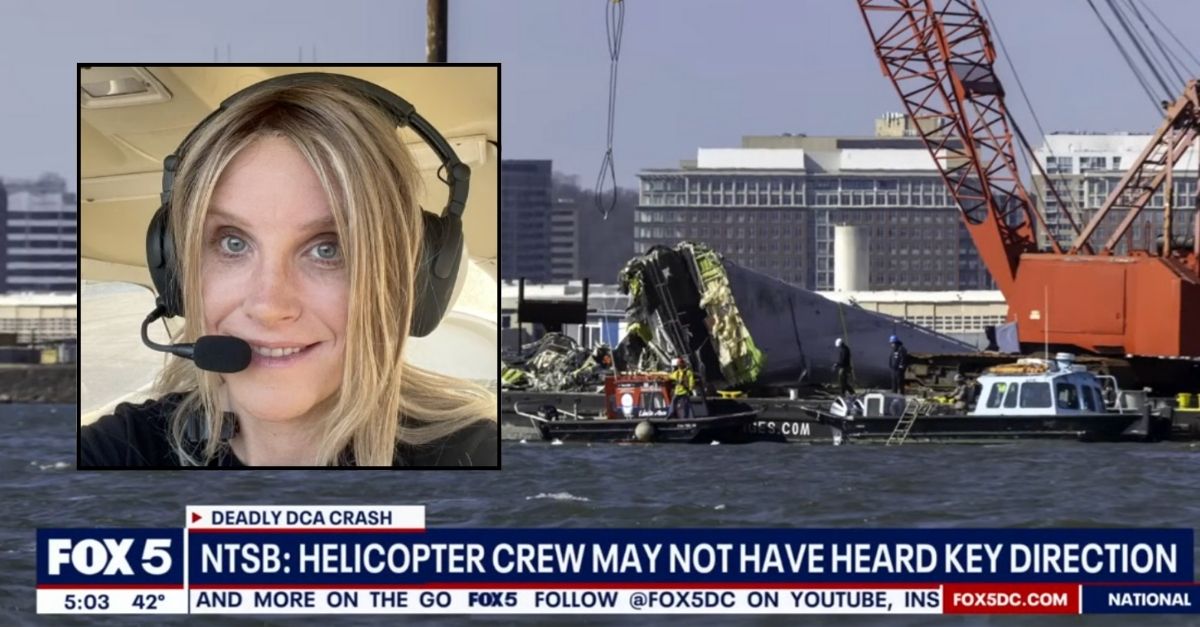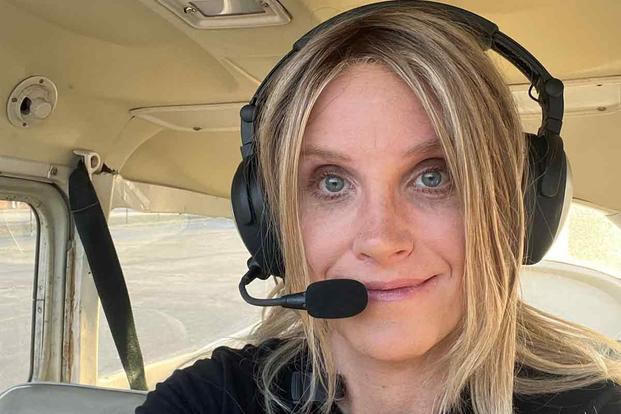Jo Ellis: False DC Crash Claims & Social Media Backlash | [Analysis]
In the chaotic aftermath of a tragic accident, how does misinformation, fueled by the immediacy of social media, spread like wildfire and cast a shadow of doubt on the innocent? The answer lies in the speed at which unverified claims can go viral, resulting in real-world consequences for those wrongly implicated.
The incident, which occurred in Washington D.C., involved a U.S. Army Black Hawk helicopter and an American Airlines passenger jet. However, in the wake of this devastating event, a dangerous narrative emerged online, falsely connecting a Virginia Army National Guard helicopter pilot, Jo Ellis, to the crash. This misidentification, which swiftly gained traction on social media platforms, had severe ramifications for Ellis, a transgender service member, forcing her to take drastic measures to protect herself and her family.
The incident started with a collision between a U.S. Army Black Hawk helicopter and an American Airlines passenger jet on January 29, 2025, in Washington, D.C., and it was immediately followed by a wave of rumors that implicated Jo Ellis.
The spread of misinformation was rapid. In the digital echo chamber of social media, unverified information can quickly gain momentum, often amplified by algorithms designed to maximize engagement. In this case, posts falsely identifying Ellis as the pilot of the downed Black Hawk helicopter began circulating online. The posts, some of which originated from social media personalities, linked her to the crash despite any supporting evidence. These claims gained traction and led to a significant backlash.
The accusations against Ellis were not only inaccurate but also deeply personal. The fact that Ellis is transgender became a focal point of the online attacks, with some posts employing transphobic rhetoric. This targeting demonstrates how online misinformation can be weaponized to spread hatred and prejudice.
| Full Name: | Jo Ellis |
| Gender Identity: | Transgender Woman |
| Military Service: | Virginia Army National Guard |
| Rank: | Chief Warrant Officer |
| Specialty: | UH-60 Black Hawk Helicopter Pilot |
| Years of Service: | Approximately 15 years |
| Combat Experience: | Iraq War, Operation New Dawn (2011) as a door gunner |
| Awards: | Air Medal |
| Humanitarian Work: | Assisted in humanitarian operations in Guatemala (2014) |
| Legal Action: | Filed a defamation lawsuit against social media personality Matt Wallace in a Colorado federal court |
| Actions to Refute Claims: | Posted a "proof of life" video on Facebook |
| Public Statements: | Released a statement on Facebook to dispel rumors |
| Links to Authentic Information: | Example Biography (Replace with a legitimate source, e.g., a news article or official statement if available) |
The repercussions of these false accusations were immediate and devastating for Jo Ellis. The widespread nature of the claims necessitated that she and her family go to extraordinary lengths to ensure their safety. She was forced to hire private armed security, a measure that underscores the real-world danger that online misinformation can create.
In response to the online attacks and to prove that she was not involved in the crash, Ellis took to social media, posting a "proof of life" video. This was intended to demonstrate that she was alive and well and could not have been the pilot of the crashed helicopter. This action highlights the need to actively refute false claims in the digital age. She also issued a statement, further clarifying her position and refuting the accusations. Additionally, Ellis filed a defamation lawsuit against a social media personality, Matt Wallace, who was allegedly linked to the spread of the false claims. This legal action is a significant step, a way for her to seek accountability and financial remedy against those who contributed to the spread of the harmful disinformation.
The actual investigation revealed the identities of the pilots involved in the Black Hawk helicopter crash to be Ryan O'Hara, Sam Lilley, and Rebecca Lobach. These were the three individuals who tragically lost their lives in the accident.
The events surrounding the misidentification of Jo Ellis serve as a stark reminder of the potential for social media to become a tool for the spread of misinformation and the real-world consequences that can follow. It underscores the responsibility of both social media users and platforms to address the proliferation of false claims and to protect those who become unwitting targets of online attacks.
The case of Jo Ellis is not an isolated incident. It is part of a larger trend of misinformation and disinformation campaigns that have become more common in recent years. These campaigns often target individuals or groups with specific characteristics and can have significant impacts on those who are targeted.
Misinformation can be defined as false or inaccurate information that is spread regardless of intent to mislead. Disinformation, on the other hand, is intentionally false information spread with the intention to deceive. Both can have serious consequences, causing harm to individuals and society.
Misinformation can be spread through various channels, including social media, news articles, and word-of-mouth. Social media platforms, in particular, have become a significant source of misinformation due to their reach and ease of sharing information.
Disinformation campaigns are often coordinated efforts to spread false information to achieve a specific goal, such as influencing public opinion, undermining trust in institutions, or inciting violence. These campaigns are often sophisticated, involving the use of bots, fake accounts, and other tactics to amplify the reach of false information.
The spread of misinformation and disinformation can have various negative impacts, including eroding trust in institutions, creating social division, and inciting violence. It can also have real-world consequences for individuals, as demonstrated by the case of Jo Ellis.
In the digital age, the fight against misinformation and disinformation requires a multifaceted approach. This includes promoting media literacy, educating the public about how to identify false information, and holding social media platforms accountable for their roles in spreading misinformation. It also involves empowering individuals to report and debunk false claims and supporting investigative journalism that can uncover and expose disinformation campaigns.
The case of Jo Ellis highlights the importance of critical thinking, fact-checking, and media literacy in the digital age. It serves as a warning against the dangers of believing everything one reads online and the importance of verifying information before sharing it. It is a reminder that the spread of misinformation can have devastating consequences and that it is everyone's responsibility to combat it.
The incident also raises questions about the role of social media platforms in preventing the spread of misinformation. While these platforms provide a valuable service for information sharing and communication, they also have a responsibility to protect their users from harm. This includes taking steps to identify and remove false information and to hold those who spread it accountable.
Moving forward, it is crucial to learn from cases like that of Jo Ellis. This requires a commitment from individuals, media organizations, and social media platforms to prioritize accuracy, transparency, and responsible behavior in the digital space. This is not only vital to protect individuals from harm but also to maintain the integrity of public discourse and uphold the values of a democratic society.
The narrative surrounding this incident emphasizes the importance of responsible reporting and the need for social media users to verify the information they encounter before sharing it. It calls for greater media literacy and critical thinking skills to combat the spread of misinformation and to safeguard individuals from the detrimental effects of online attacks. The experience of Jo Ellis serves as a potent reminder of the impact of unchecked narratives and the urgent need for a collective effort to promote truth and accountability in the digital age.


